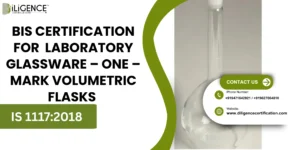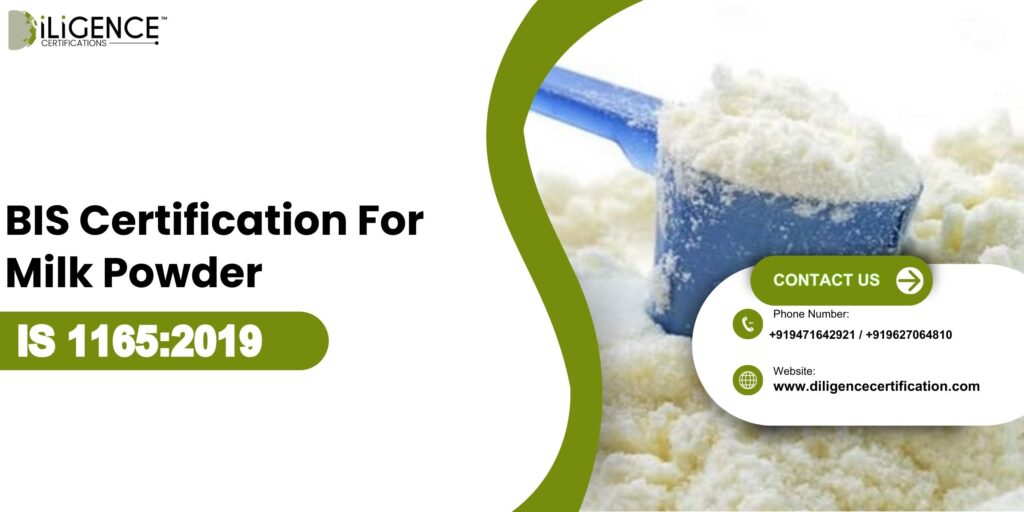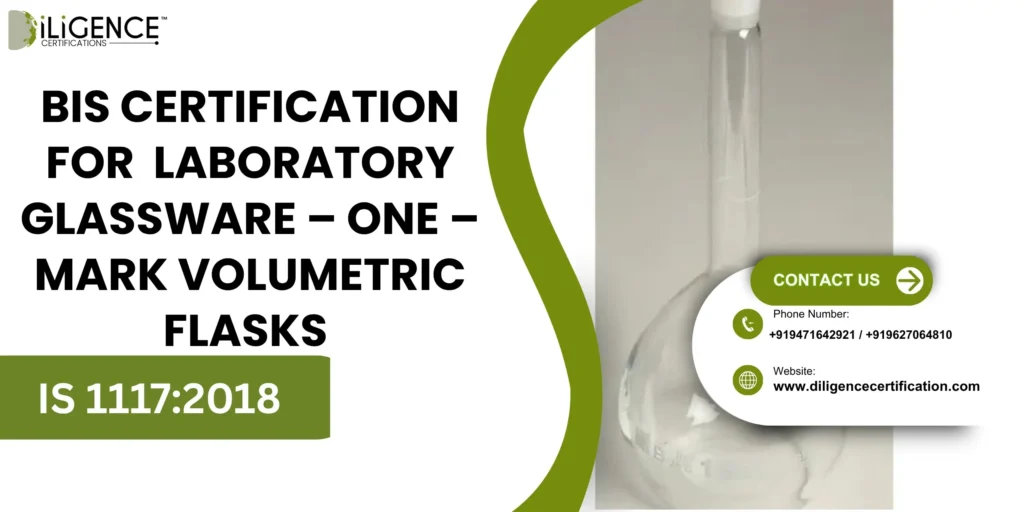- Ensures that milk powder meets strict quality standards, chemical and microbiological specifications.
- The BIS Standard Mark on packaging helps create confidence among consumers and credibility for brands.
- Certified BIS Certification For Milk Powder can display the IS 1165, showing quality, safety, and legal compliance.
- Provides easier access to markets and diminished legal and business risks.
Introduction

Bureau of Indian Standards is an organization that ensures products are manufactured in compliance with a certain number of safety and quality laws by regulating products. Milk powder is a common staple used for infants, children, and households and is regulated by BIS standards. Milk Powder IS 1165 is a certification of compliance with standardized Indian food safety regulations and provides a framework for both consumer protection and brand protection.Despite having high product quality, Amul faced distribution delays in northern states due to lacking BIS certification. This is a common scenario. Manufacturers invest heavily in technology, but without BIS certification, they cannot legally sell their products regardless of quality.
What is BIS Certification for Milk Powder?
Milk powder that meets the requirements of IS 1165 will receive BIS certification in accordance with the quality mark for milk products.
- IS 1165 establishes the chemical, microbiological, and packaging specifications for milk powder.
- Scope: All types of milk powder, including full cream, skim, and fortified milk powder are included.
- Regulatory Compliance: IS 1165 is compliant with national food safety laws from FSSAI, and international food safety regulations, which will lead to greater acceptability in both domestic and export markets.
What is IS 1165:2019?

- IS 1165: 2019 outlines the requirements for quality and safety for milk powder in India.
- Composition: Provides limits for fat, protein, moisture and other permitted additives.
- Safety: Ensures the milk powder is free of pathogenic microorganisms, toxins and contaminants and it is also not adulterated.
- Packaging and labelling: Outlines the requirements for hygienically packaged and labelled milk powder intended for consumers.
Who needs BIS Certification for Milk Powder?
A mandatory certification for compliance with the Compulsory Registration Scheme (CRS) / Mandatory Certification Scheme is the BIS certification for milk powder; this is to be obtained by manufacturers, importers, packers, and brand owners.
Manufacturers
- A manufacturer of milk powder or dried milk produced in India, and sold in the Indian market will need to apply for BIS certification in compliance with IS 1165:2019 (Milk Powder – Specification) or the applicable Indian Standard.
Importers
- A foreign manufacturer wishing to import milk powder into India, will also need to apply for a BIS certification through the Foreign Manufacturers Certification Scheme (FMCS), before being allowed into the Indian market.
Packers & Brand Owners
- Even if a company does not manufacture the milk powder, but sells the milk powder under their own private brand and packaged by other manufacturers will have a requirement to hold a valid BIS license.
Importance of BIS Certification for Milk Powder
BIS certification is highly important for milk powder because this product will be consumed by infants, children, and other vulnerable segments of the population who need extra assurance of safety and safety compliance, among other matters.
- Consumer Protection: In light of the consumption of milk powder by infants, children, and families (and, in fact, even by pets), BIS certification provides consumer assurance that the food product is safe, and it meets microbiological and chemical standards.
- Quality Standards: IS 1165 provides specifications for fat levels, moisture specifications, packaging specifications, and hygiene requirements to be labeled accordingly.
- Legal Compliance: A BIS certificate is required to sell milk powder, and the sale of milk powder without BIS certification is illegal under BIS regulations. There are consequences if this regulation (law) is violated when selling milk powder: product recalls, cease all sales, and heavy fines.
- Market Protection: A BIS certification prevents unsafe products from entering into the market and protects the wellbeing of both the manufactured product and the consumer.
Benefits of BIS Certification for Milk Powder IS 1165?
These are the principal advantages of BIS Certification for Milk Powder IS 1165:
- Legal Compliance: For milk powder manufacturers’ legal status in the Indian market, it is a legal necessity to obtain BIS Certification under IS 1165 – thus achieving full compliance.
- Consumer Trust: The presence of the BIS Standard on milk powder packaging and labels provides consumer confidence that the product is safe, genuine and has met required Government of India quality standards.
- Market access: Certified milk powder appeals to retail chains, e-commerce sites, and export markets, as a strategy for reducing risk and uncertainty in product offerings.
- Risk reduction: Certification eliminates the risk of recalls, penalties, and/or reputational harm since the process requires consistency, safe products, and quality.
- Competitive Edge: BIS has become a marketing advantage to many brands and most competitors use BIS Certification to market products due to the crowded dairy market. Examples include Amul, and Mother Dairy.
- Quality Benchmarking: Obtaining and maintaining certification will require inspections and testing, and establishes a high internal quality standard. Hence, it positively influences overall production operations.
Key Highlights For BIS Certification for Milk powder
- Mandatory Requirement – Milk powder must comply with BIS (ISI) certification as per the Food Safety and Standards Act and relevant Indian Standards.
- Applicable Standard – The primary standard is IS 1165:2018 (Milk Powder – Specification).
- Authority – Certification is issued by the Bureau of Indian Standards (BIS) under the Compulsory Registration Scheme (CRS) or ISI Scheme, depending on the product use.
- Quality & Safety Check – Ensures the product is safe, free from contaminants, and meets nutritional requirements.
- Testing Requirement – Samples of milk powder must be tested in a BIS/NABL-accredited laboratory for compliance with parameters like fat content, moisture, microbiological quality, etc.
- Factory Inspection – BIS officials inspect the manufacturing unit to check hygienic practices, quality control, and process flow.
- Validity – Certificate is valid for 2 years initially, and can be renewed further if compliance is maintained.
- Labelling & ISI Mark – Once certified, the milk powder package must carry the ISI Mark to show compliance with BIS standards.
- Penalties – Selling or importing milk powder without BIS certification can lead to legal penalties, fines, or product seizure.
- Market Advantage – BIS mark builds consumer trust, ensures safety, and helps in wider market acceptance (retail, exports, government tenders).
Step-by-Step Process for Getting BIS Certification for Milk Powder IS 1165
While BIS certification needs careful planning, it is a straightforward procedure. Here is a structured process:
Establish the Product Standard
- Identify the type of milk powder (full cream, skimmed, and fortified) you are producing.
- Demonstrate compliance with the IS1165 standards in regard to chemical properties, fat content, moisture and additives.
Compile Your Documentation
- Documentation includes your factory layout, a brief description of processes undertaken in the factory and how quality control is conducted.
- Laboratory test reports for microbiological, chemical, and nutritional analysis are helpful.
- ISO or HACCP certifications, if available, help demonstrate compliance.
Submit the Application
- Applications must be submitted through the BIS online portal and an application form must be completed.
- You will also need to include an application fee with the application and proof of all the related documentation for the BIS certification scheme for which you are applying.
Factory Inspection
- BIS officials will visit your facility
- The factory has to conform to all the structural requirements in IS 1165.
- Compliance with cleanliness, storage conditions, cleaning and hygiene practices is critical.
Samples Tested
- Product samples will be collected randomly and then sent to NABL-accredited laboratories.
- Tests ensure product shelf life, nutrient retention, and absence of contaminants.
Grant of Certification
- Once you pass inspection and testing, you’ll receive a BIS license valid for 1 year, renewable annually.
- Certified products can now display the BIS Standard Mark, enhancing brand credibility.
BIS Certification Documents Required:
- Application form (Form-V)
- Manufacturing process flow chart
- Details of test equipment & calibration
- Factory license/registration
- Quality control documentation
- Sample test reports (if available)
Timelines, Costs, Validity & Renewal
| Step / Aspect | Details / Timeline |
| Complete Timeline | 30–45 days in total (if all requirements are properly met) |
| Factory Inspection & Sampling | 10–15 working days (depends on BIS inspection schedule) |
| Lab Testing of Samples | 15–20 working days (in NABL-accredited laboratories) |
| Grant of Certification | Usually within 30–45 days (if all documents and test reports are found compliant) |
| Validity | Initial certification is valid for 1 year |
| Renewal | Can be renewed for 1–2 years at a time (subject to compliance) |
Why Choose Diligence Certification
Diligence Certification makes BIS Certification for Milk Powder according to IS 1165 easier for you. We understand the process. We do all the work – document prep, testing, inspections, renewals, while you work on your business!
- Specialized experience in dairy products and certification.
- End-to-End support – Application, Testing, Inspection and Approval.
- Faster processing with lower probability of rejection or delays.
- Support for renewals, audits and ongoing compliance.
- Trusted by SMEs and leading brands across India.
Conclusion
The BIS certification for milk powder ensures that quality and safety is provided to the consumer. Certifying due diligence provides assurance and integrity towards the business you are conducting. It shows due diligence of efforts being made to reduce risk and assure trust with stakeholders. While you may never be able to accommodate every possible risk, it demonstrates you have made a good faith effort to operate ethically. In the current state of business, that certification maintains a level of credibility and trust, not just a box you are to check off somewhere.
Frequently Asked Questions
What is BIS Certification for Milk Powder IS 1165?
BIS Certification for Milk Powder IS 1165 is a quality and safety certification issued by the Bureau of Indian Standards to ensure milk powder meets chemical, microbiological, and packaging standards in India.
Who needs BIS Certification for Milk Powder?
Manufacturers, importers, packers, and brand owners who sell Milk Powder in India will require a BIS Certification under IS 1165 to sell a product legally in Indian Markets.
What are the benefits of obtaining BIS Certification for Milk Powder?
BIS Certification ensures safety to consumers, builds consumer trust in the quality of their products, provides a requirement under the law, allows easier access to markets, reduces risks associated with the milk powder industry.
What variety of milk powders are included with IS 1165?
All varieties of Milk Powder are included with the IS 1165 standards, including full cream, skimmed, and fortified Milk Powder.
How long does it take to obtain BIS Certification Milk Powder?
On average, the entire process will take 30-45 days to be completed, including taking an application, undergoing inspections of the factory, and testing samples taken to a NABL accredited laboratory.
What documents will be required to obtain BIS Certification?
Mandatorily, the required documents will include an application (Form-V), a layout of the factory, process flow chart documentation, documents related to quality control, report of tests performed on samples, and Factory Registration/License.
Is it necessary to obtain BIS Certification for Milk Powder Products in India?
Yes, Milk Powder must have BIS certification to be sold in India as part of the compulsory registration scheme and Food Safety Standards Act.
How will milk powders be tested for BIS Certification in India?
As per IS 1165, milk powders will be tested in NABL accredited laboratories on chemical composition, fat content, moisture content, additives, and microbiological safety.
How long is the BIS Certification valid?
The initial certification is valid for 1 year, thereafter, it renews each time for 1-2 years depending on the manufacturer meeting the compliance.
Can imported milk powder get BIS Certification?
Yes, foreign manufacturers must obtain BIS certification through the Foreign Manufacturers Certification Scheme (FMCS) before selling milk powder in India.








 BIS Certification
BIS Certification
 CDSCO
CDSCO
 CPCB
CPCB
 LMPC
LMPC
 WPC Approval
WPC Approval
 Global Approvals
Global Approvals
 TEC
TEC
 ARAI
ARAI
 BEE
BEE
 ISO Certification
ISO Certification
 Drone Registration
Drone Registration
 NOC For Steel
NOC For Steel



















 Business Registration
Business Registration















 Legal Services
Legal Services
















































